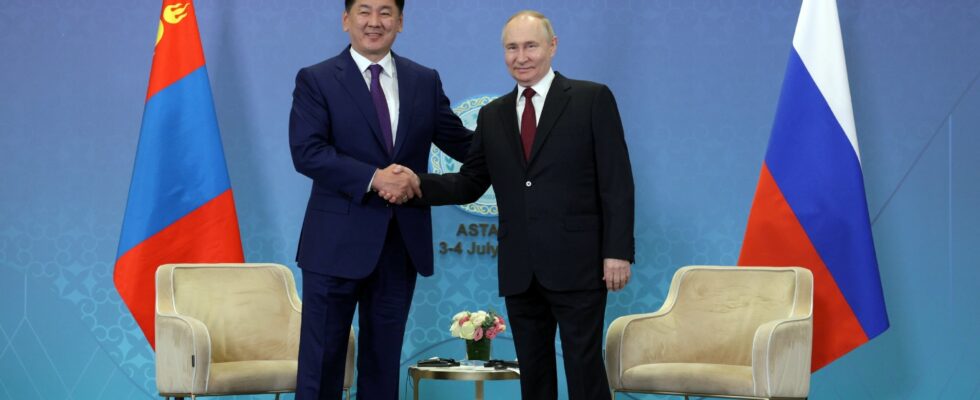Summit after summit, the world’s great powers are challenging each other. On the one hand, the West met in Washington between July 9 and 11, on the occasion of the 75th anniversary of NATO, founded in 1949 at the end of the Second World War. On the other, last week, on July 3 and 4, the Shanghai Cooperation Organization (SCO) met in Astana, Kazakhstan, for its annual meeting. The SCO, founded in 2001 by China and Russia, aims to be an organization for cooperation in security and defense matters.
“Committed to opposing Western hegemony on the international scene, the SCO embodies a vision of a multipolar world, as evidenced by the presence of Iran, India and Pakistan alongside Russia and China and 14 partner states,” underlines Jean de Gliniasty, research director at the Institute of International and Strategic Relations (Iris) and former French ambassador to Russia, in an interview published on the Iris website.
An alternative to NATO?
Belarus, Moscow’s greatest ally, has also just joined the Shanghai Cooperation Organization, becoming the tenth member country. In addition to Belarus’s accession, the political agenda for the SCO has been busy this year, ranging from cooperation on crime and terrorism to the war in Ukraine, and dealing with the reconciliation project between Turkey and Syria.
However, this cooperation would be far from equaling the transatlantic alliance for the time being, the member countries of the SCO being far from forming a solid bloc. “There are a certain number of them that are at war, some that have very tense relations like China and India, India and Pakistan or certain countries of Central Asia between them, so we are very far from a collective defense organization like NATO can be, it is difficult to compare,” explained Mathieu Droin, on the airwaves of RFI.
However, its vocation has evolved since the early 2000s. From issues of terrorism, cross-border crime, and ethnic separatism, “the organization has gradually served as a framework for legitimizing the Chinese Silk Roads (Belt and Road Initiative)”, points out Jean de Gliniasty. “The Astana summit is a further step in this evolution towards a multilateral organization that addresses major global issues in an anti-Western sense”, he adds.
Strategic reporting
Just like NATO, the SCO conducts joint military exercises. A few days before the transatlantic alliance summit, China sent soldiers to Belarus, right on the border with Poland, itself a NATO member. These unprecedented military exercises with Russia’s main ally in the region were intended above all to send a message to the West. “As is often the case at the time of major summits, we have what we can call strategic signals,” Mathieu Droin told RFI. The idea is to show, at a time when NATO is insisting on the fact that it is strengthening its partners with China’s neighbors, the famous Indo-Pacific partners, that China is capable of forming partnerships and being active on Europe’s borders.”
Far from being indifferent to this rapprochement, NATO leaders, meeting Wednesday in Washington, expressed their “deep concerns” about the rapprochement between Russia and China. They denounced Beijing’s support for the Russian war effort in Ukraine, according to a final statement. “The tightening of the strategic partnership between Russia and China, as well as their combined attempts to destabilize and reshape the rules-based international order, raise deep concerns,” they said.
